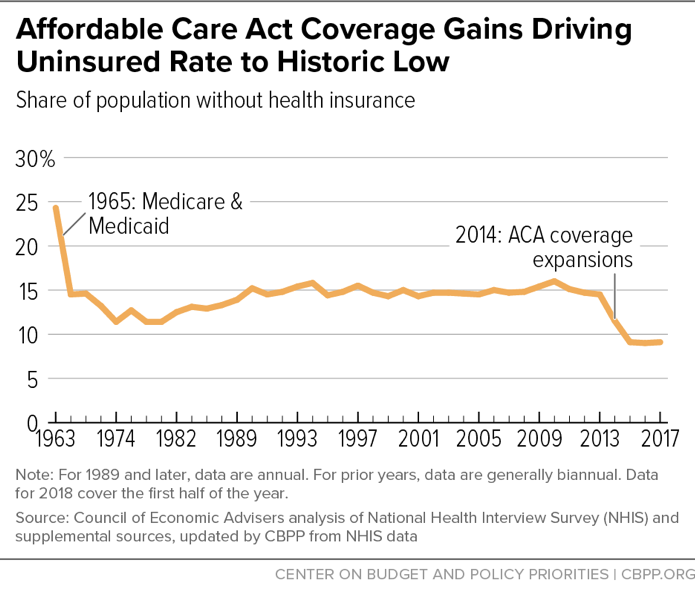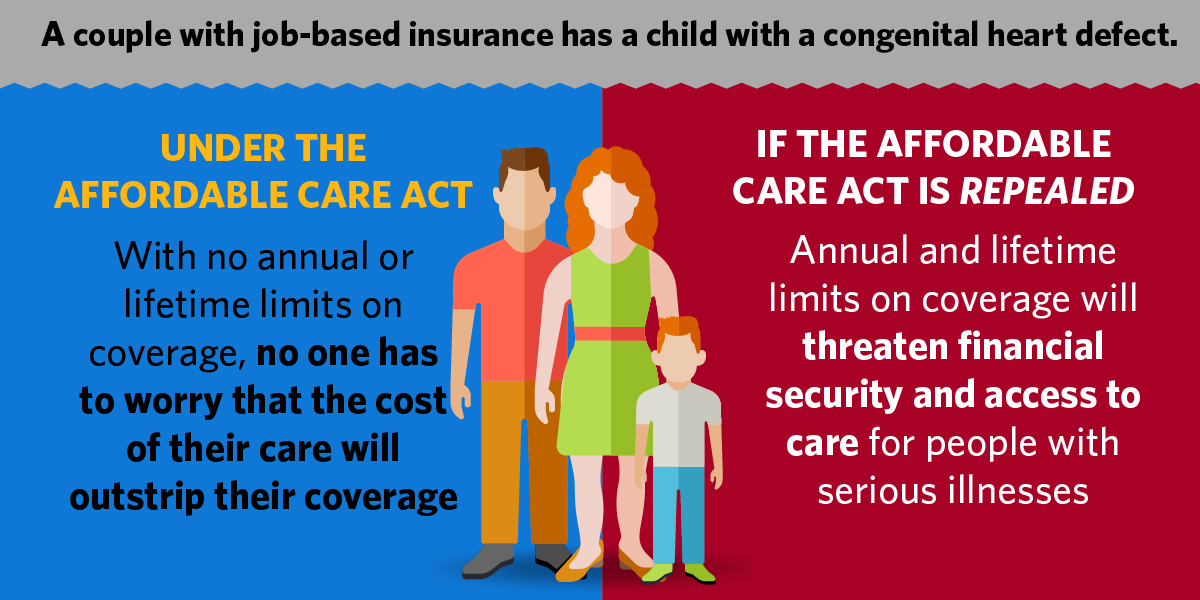The Affordable Care Act (ACA) is a comprehensive healthcare reform law enacted in 2010. It aims to make health insurance more affordable and accessible.
The ACA, also known as Obamacare, introduced several key provisions to improve the U. S. Healthcare system. It expanded Medicaid eligibility and created health insurance marketplaces for individuals. The law also mandated that insurers cover pre-existing conditions and offer essential health benefits.
By providing subsidies, the ACA made insurance more affordable for low and middle-income families. The act also aimed to reduce healthcare costs and improve healthcare quality. By increasing access to preventive services, the ACA sought to improve public health outcomes. Overall, the ACA represents a significant effort to reform healthcare in the United States.
:max_bytes(150000):strip_icc()/affordable-care-act.asp-final-43c18941b07c4e49b29738891503d38d.png)
Credit: www.investopedia.com
Introduction To The Affordable Care Act
The Affordable Care Act, often called ACA or “Obamacare,” is a landmark health reform law. It was enacted in March 2010 to make healthcare more accessible and affordable for Americans. Let’s delve into its origins, history, and key objectives.
Origins And History
The ACA was signed into law by President Barack Obama on March 23, 2010. The law aimed to address the high number of uninsured Americans. Before the ACA, many people could not afford health insurance or were denied coverage due to pre-existing conditions.
The origins of the ACA trace back to earlier health reform efforts. These efforts include the Clinton administration’s failed attempt in the 1990s. The ACA also drew inspiration from Massachusetts’ health reform law enacted in 2006 under Governor Mitt Romney.
| Key Event | Date |
|---|---|
| Signed into Law | March 23, 2010 |
| First Open Enrollment | October 1, 2013 |
| Major Provisions Take Effect | January 1, 2014 |
Key Objectives
The ACA had several key objectives aimed at improving healthcare:
- Increase the number of insured Americans.
- Make health insurance more affordable.
- Improve the quality of healthcare.
- Reduce the growth of healthcare spending.
One of the major provisions was the individual mandate. This required most Americans to have health insurance or pay a penalty. The ACA also expanded Medicaid to cover more low-income individuals.
Another key objective was to create health insurance marketplaces. These marketplaces allow people to compare and purchase insurance plans. Subsidies are available to help lower-income individuals afford coverage.
The ACA also introduced protections for people with pre-existing conditions. Insurers can no longer deny coverage or charge higher premiums based on health status.

Credit: www.cbpp.org
Major Provisions
The Affordable Care Act (ACA) has several key provisions. These provisions aim to improve healthcare access and affordability. Let’s dive into some of the major ones.
Individual Mandate
The Individual Mandate requires most Americans to have health insurance. This mandate ensures everyone contributes to the health system. Those without insurance may face a tax penalty. This helps spread healthcare costs among more people.
There are exemptions to this mandate. Some people may qualify for hardship exemptions. These exemptions include financial problems or other specific situations.
Employer Requirements
The ACA also includes Employer Requirements. Employers with 50 or more full-time employees must provide health insurance. This insurance must meet minimum standards for coverage and affordability.
Employers not offering insurance may face penalties. This encourages businesses to support their workers’ health needs. Smaller businesses may receive tax credits to help cover insurance costs.
| Provision | Requirement | Penalty |
|---|---|---|
| Individual Mandate | Most must have insurance | Tax penalty for non-compliance |
| Employer Requirements | 50+ employees must offer insurance | Penalties for non-compliance |
Impact On Health Insurance
The Affordable Care Act (ACA) has greatly changed health insurance in the U.S. It aimed to make health coverage more accessible and affordable for many people. Let’s explore its impact on health insurance through Insurance Marketplaces and Medicaid Expansion.
Insurance Marketplaces
The ACA created online Insurance Marketplaces, also known as exchanges. These platforms allow people to compare and buy health plans easily. They offer a variety of plans from different insurers. Each plan must cover essential health benefits like emergency services, maternity care, and prescription drugs.
People can also receive subsidies to help pay for their insurance. These subsidies are based on income and family size. There are two types of subsidies:
- Premium Tax Credits: Help reduce monthly premiums.
- Cost-Sharing Reductions: Lower out-of-pocket costs like deductibles and co-pays.
The marketplaces have made it easier for millions to get insured. They provide a transparent way to shop for health insurance. This ensures that everyone can find a plan that suits their needs and budget.
Medicaid Expansion
The ACA also expanded the Medicaid program. Medicaid is a state and federal program that provides health coverage to low-income individuals. The expansion aimed to cover more people under this program.
The expansion allows states to offer Medicaid to adults earning up to 138% of the federal poverty level (FPL). This has significantly increased the number of people eligible for Medicaid. Here’s a quick breakdown:
| Income Level | Eligibility |
|---|---|
| Up to 138% of FPL | Eligible for Medicaid |
| Above 138% of FPL | Check for other subsidies |
As of now, many states have adopted this expansion. It has allowed millions to gain access to affordable health care. States that expanded Medicaid saw a drop in uninsured rates.
In conclusion, the ACA’s changes to health insurance have been significant. The Insurance Marketplaces and Medicaid Expansion have provided more options and coverage for people across the country.

Credit: obamawhitehouse.archives.gov
Benefits For Consumers
The Affordable Care Act (ACA) offers many benefits for consumers. It aims to make healthcare accessible and affordable. Below, we explore some key benefits under the ACA.
Pre-existing Conditions
Before the ACA, people with pre-existing conditions often faced difficulties. Insurance companies could deny coverage or charge high rates. The ACA changed this. Now, insurers cannot refuse coverage due to pre-existing conditions. This means more people can get the care they need.
Essential Health Benefits
The ACA mandates that all insurance plans cover essential health benefits. These benefits include:
- Emergency services
- Maternity and newborn care
- Prescription drugs
- Mental health services
- Rehabilitative services
These services ensure comprehensive care. Every consumer gets access to vital health services. This makes managing health easier and more reliable.
Controversies And Criticisms
The Affordable Care Act (ACA) has sparked debates since its inception. This landmark legislation aimed to provide healthcare access. Yet, it has faced significant opposition and scrutiny.
Political Opposition
The ACA has faced strong political opposition. Many Republicans view it as government overreach. They argue it infringes on personal freedoms. Some states refused to expand Medicaid under ACA.
Opponents claim the law is too complex. They believe it adds unnecessary regulations. Many have tried to repeal it. This has led to numerous legal battles.
Economic Concerns
The ACA has also raised economic concerns. Critics argue it increases healthcare costs. They claim premiums and deductibles have risen. Small businesses feel the burden of providing insurance.
Supporters say it helps in the long run. They argue it reduces overall healthcare spending. Yet, the economic debate continues.
Here’s a simple comparison table:
| Pros | Cons |
|---|---|
| More people insured | Higher premiums |
| Pre-existing conditions covered | Complex regulations |
| Medicaid expansion | Economic burden on small businesses |
The debate over ACA remains heated. Both sides present strong arguments. The future of ACA is still uncertain.
Future Of The Aca
The Affordable Care Act (ACA) has faced many challenges since its inception. As we look to the future, many wonder what lies ahead. This section explores potential reforms and the long-term outlook for the ACA.
Potential Reforms
Changes to the ACA may happen soon. Lawmakers discuss new ideas every year. These ideas include:
- Expanding Medicaid to cover more people
- Lowering prescription drug prices
- Introducing a public option for health insurance
Lawmakers want to make the ACA better for everyone. These reforms could help more people get the care they need.
Long-term Outlook
The ACA has changed healthcare for millions. Its future depends on many factors. These include:
- Political support for the ACA
- Economic conditions that affect healthcare funding
- Advancements in medical technology and treatments
Experts believe the ACA will continue to evolve. They predict it will adapt to meet new challenges and opportunities.
In conclusion, the future of the ACA looks promising. With the right reforms, it can help even more people.
Frequently Asked Questions
What Is The Affordable Care Act?
The Affordable Care Act (ACA) is a healthcare reform law aimed at expanding access to insurance.
Who Benefits From The Affordable Care Act?
The ACA benefits individuals without insurance, low-income families, and people with pre-existing conditions.
How Does The Aca Affect Insurance Costs?
The ACA aims to make insurance more affordable through subsidies and expanded Medicaid coverage.
What Are Aca Essential Health Benefits?
Essential health benefits include services like emergency care, maternity care, and prescription drugs, mandated by the ACA.
How Do I Enroll In Aca Coverage?
You can enroll in ACA coverage through the Health Insurance Marketplace during open enrollment periods.
Conclusion
The Affordable Care Act aims to make healthcare accessible and affordable for everyone. It provides essential benefits and protections. Understanding its impact helps individuals and families navigate their healthcare options better. Stay informed and take advantage of the resources available under this important law.
Your health and well-being matter.
